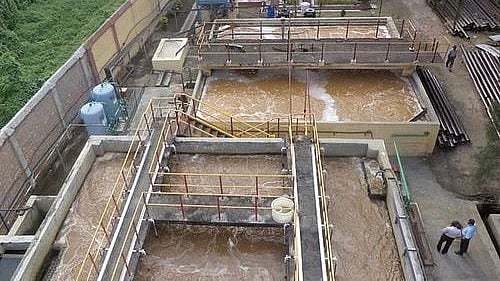The MPCB on Monday issued directions to the BMC to curb the dust pollution at Shivaji Park and the main action includes developing green patches. The MPCB in its list of directions has also suggested setting up a Sewage Treatment Plant (STP) on or near the ground and using the treated water to water the grass instead of fresh water. However, the residents have strongly opposed MPCB’s proposal of setting up an STP in a residential area.
The residents of Dadar’s Shivaji Park met the MPCB chairman on Monday taking an update on measures taken to curb flying red soil at the ground. “We welcome MPCB’s proactive actions to address the dust pollution menace at Shivaji Park, but we will ensure an STP does not come up. There is a temple nearby. Moreover, people will not be comfortable walking on the grass which is watered by sewage-treated water,” said a resident of Shivaji Park, Nandan Mungekar.
Mungekar added that the BMC was told in 2021 to not put red soil on the ground as it will damage the existing rain harvesting project, but it ended up dumping the soil which covered up the rain harvesting pits. The dumping of the red soil is the origination of dust menace in the area.
However, BMC’s Environment Department said installing a mini STP at the park with a capacity of 50 liters is feasible. The machine is small, treats limited sewage and does not stink.
On the other hand, some feel the idea of growing grass on the ground itself is not feasible. “There are more than 45 non-sporting activities (political, public events) that extend to over 60 days of preparation and dismantling. It is impossible to sustain the grass that BMC intends to grow in the park,” said Shivaji Park Residents ALM Vaibhav Rege.
In the 7.8-acre big Shivaji Park, 30 percent is the green patch (including cricket pitches) and 70 percent is the ground. In 2023, the BMC tried to develop more green patches at the ground, however, due to high footfall it did not sustain.
